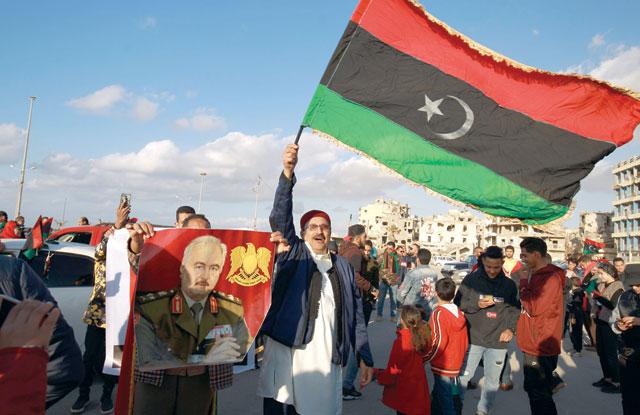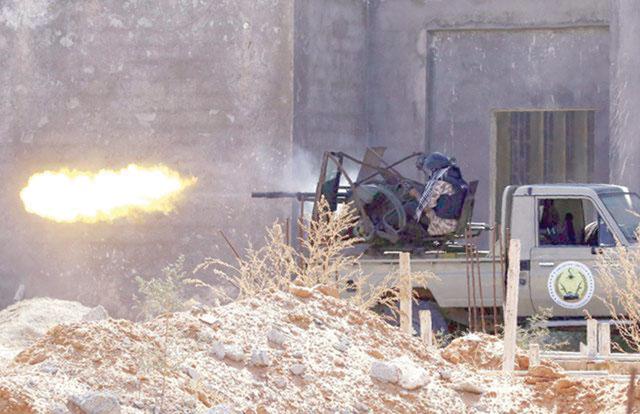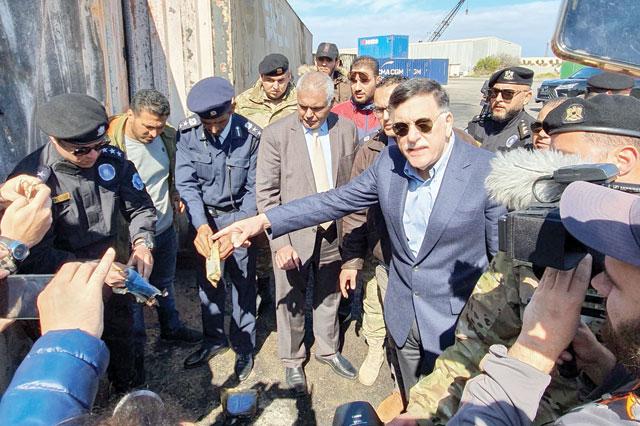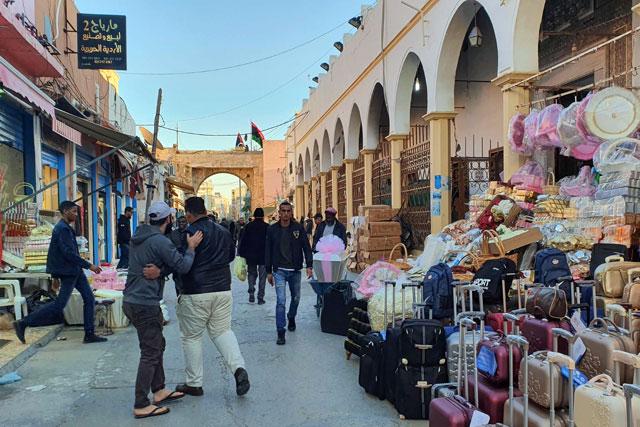You are here
UN welcomes help in enforcing arms embargo in Libya
By AFP - Feb 18,2020 - Last updated at Feb 18,2020

Libyans wave their national flag as they take part in a celebration marking the Libyan revolution, which toppled strongman Muammar Qadhafi, in Benghazi on Monday (AFP photo)
GENEVA — The United Nations on Tuesday welcomed a new EU naval operation to enforce an arms embargo on Libya as the warring sides in the conflict met for military talks in Geneva.
EU foreign ministers agreed Monday to a naval mission that will be authorised to intervene to stop weapons shipments into the North African state.
"Whoever can help in monitoring the arms embargo is welcome in whatever part of Libya," UN Libya envoy Ghassan Salame told reporters.
"What is needed is that member states of the UN come to the rescue... in monitoring the violations of the arms embargo, otherwise it will not end," he said.
Salame said the embargo was being violated by air, land and sea, pointing to Libya's large and porous border.
The UN envoy on Tuesday began hosting a second round of talks in Geneva to attempt to turn a shaky truce between the UN-recognised government in Tripoli and eastern-based military commander Khalifa Haftar into a lasting ceasefire.
States including Russia, the United Arab Emirates and Egypt support Haftar, while the UN-recognised government led by Fayez Al Sarraj is backed by Turkey and Qatar.
Russian Foreign Minister Sergei Lavrov said on Tuesday the new EU mission should be implemented "in agreement with the UN Security Council".
Lavrov was meeting his Italian counterpart in Rome over the EU agreement which several countries had demanded should not encourage a spike in migrant crossings from North Africa to Europe.
"The ships will be deployed to the east to monitor weapons, not along the migrant route," Italian Foreign Minister Luigi Di Maio said.
No talks together
Libya has been in turmoil since a 2011 NATO-backed uprising killed longtime president Muammar Qadhafi, with rival armed factions still vying for power.
In the latest outbreak of fighting, Haftar launched his offensive on Tripoli last April, but after rapid advances his forces stalled on the edges of the capital.
The fighting has left more than 1,000 people dead and displaced some 140,000 according to the United Nations.
Five senior officers from the Government of National Accord and five appointed by Haftar’s Libyan National Army were taking part in the Geneva talks — part of broader efforts to end the conflict in the country.
Salame said he was meeting with the two sides separately but did not rule out possible joint talks at a later date.
A first round of the talks ended with no result earlier this month but Salame said there was “more hope” this time, mainly because of the approval of a UN Security Council resolution calling for a “lasting ceasefire”.
World leaders had agreed at a Berlin summit last month to end all meddling in the conflict and stop the flow of weapons, but little has changed on the ground since then.
Salame said the truce was “very fragile” but “nobody has so far renegued on the principle of accepting the truce”.
He said agreeing a ceasefire was “not a precondition” for talks planned to start in Geneva on February 26 on finding a political solution to the long-running conflict.
Related Articles
GENEVA — Representatives of the warring parties in Libya meeting in Geneva have agreed on the principle of turning their shaky truce into a
TRIPOLI — Libya's unity government has announced it is halting its participation in UN talks aimed at brokering a lasting ceasefire in the w
BERLIN — A peaceful solution to Libya's protracted conflict remains uncertain despite an international agreement struck in Germany, analysts

















